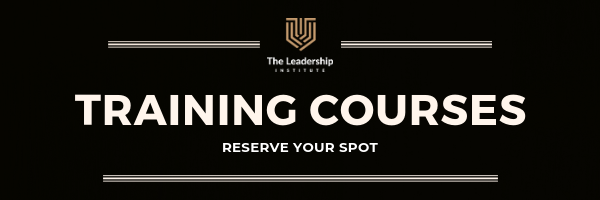It’s never too early to start planning your professional development goals and actions in 2020. Check out our lineup of courses and events to get ahead of career trends, expand your network and learn new skill sets.
If you are looking to improve yourself at work, it’s time to go beyond what your company offers in the learning and development department. As work becomes more competitive, moving up to the next level requires a more proactive approach to training.
Here are 4 strategies you can do right now to super-charge your career.
1. Take a hard look at your skills
What skill, knowledge, and experience gaps do you need to fill to be excellent at your current job and be considered to move up to the next level? There are three areas in your professional tool kit that you will need to check –
Technical – the ability to perform specific tasks or the level in which you operate systems and applications to be functional at your job. For example, if your job requires some Excel skills, consider increasing your level from “basic” to “expert.”
Communication – the ability to process, organise, and articulate information. Asking the right questions is an important communication skill. So is listening and understanding your audience and tailoring what you say and how you say it. How would you rate your writing skills? How about your presentation skills? Having excellent communication skills sets you up for success in your current role and beyond.
Enterprise – the ability to create business value. You do not have to own a business to learn enterprise skills. You need to show real interest in how your company does business. Consider leveling up on skills such as spotting market opportunities, suggesting ways to improve processes, or coming up with new ideas to serve customers better. These are skills that employers will pay top dollar for.
2. Get Your Manager’s Feedback
Include your manager in your professional development journey by asking for feedback. Questions like – what does it mean to be successful in your position? What are your KSIs (Key Success Indicators)? What will it take to be considered for a promotion, and what is the timeframe for that?
Receiving this kind of feedback is essential to your professional growth and should be an
on-going conversation with your manager. If that’s not happening, understand the success indicators of your role. Identify and track your weekly, monthly, and quarterly targets so that you are well prepared when the evaluation period comes around.
3. Research your company or industry
Keep an ear to the ground and find out the issues, threats, and opportunities that are of growing concern to your company. Then plan to increase your knowledge or competence in that area. For example, your company is grappling with a time waste issue, study up, and write a proposal with specific action plans to address it.
You can circulate this internally or write a white paper and publish it. Developing your expertise in an area of increasing importance to your company or industry can be your ticket to a more rewarding career opportunity.
4. Put it all together and map out a plan.
List the 5 to 10 skills you need to develop in your career for 2020. Then identify the classes, online courses, books, and conferences you need. Lastly, take out your calendar and allocate the time to do them. A good rule of thumb when allocating time for learning is the 80-20 Rule. For example, block-off 8 hours out of your 40-hour workweek for training.
“Plans are nothing. Planning is everything.”
Dwight Eisenhower
The irony of a plan is that it’s useless and can only be valuable when you set it in motion.
If you have started on a plan, congratulations! You are one step closer to your goal and have defined in your mind the outcome you desire for your career. Now go and make them happen!



